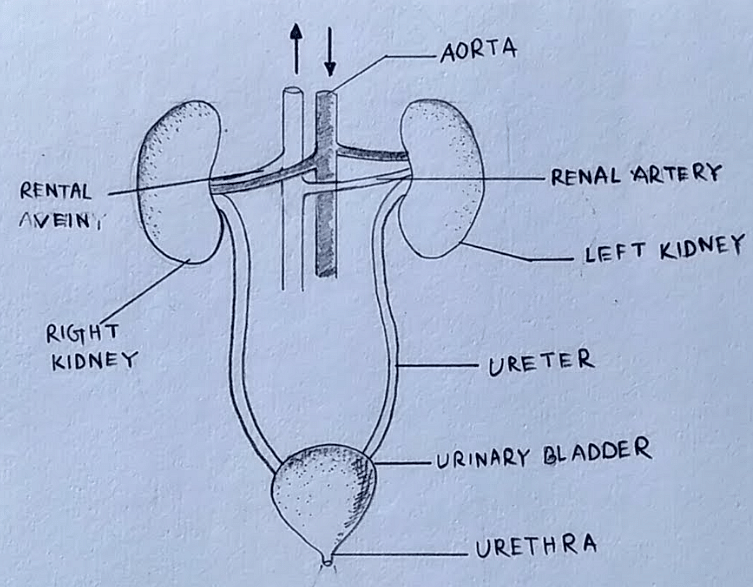
Content Curator
The Human Excretory System is composed of several organs and structures responsible for removing waste products from the body. These organs include the kidneys, ureters, bladder, and urethra. The kidneys filter waste from the blood and produce urine, which is carried to the bladder for storage until it is eliminated from the body through the urethra.
(a) The organs of the human excretory system are kidneys, ureters, bladder, and urethra.

Labelled Diagram of Human Excretory System
Functions of Human Excretory System
The human excretory system helps remove waste products from the body and maintain homeostasis. Its main functions include:
- Filtering waste products such as urea and creatinine from the blood and removing them as urine.
- Regulating fluid and electrolyte balance.
- Regulating blood pressure.
- Maintaining pH balance.
- Excretion of waste products like carbon dioxide through the lungs.
- Elimination of waste products produced during metabolism through the skin in the form of sweat.
(b) Dialysis is a medical treatment used to filter waste and excess fluids from the blood of people with kidney failure. It uses a machine to artificially filter the blood and remove waste and fluids, which helps to keep the body in balance and prevent complications from kidney failure. Dialysis is a medical treatment for patients with kidney failure, who are unable to remove waste and excess fluid from their bodies efficiently.

Dialysis
Also check:





Comments